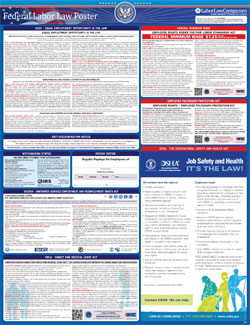 Federal Child Labor in Entertainment & Performing Arts
Federal Child Labor in Entertainment & Performing Arts
Child labor laws on Federal levels have special provisions that apply to underage performers in the entertainment industry such as child actors, models, singers, etc. Due to the nature of the work and the established need for child performers, entertainment industry child labor laws tend to be less strict than general child labor regulations.
Regulation of child labor in the entertainment industry may include specification of whether or not employment certificates are required, mandatory consent from a parent or guardian, restricions on the type of work that can be done, and more.
Federal Child Labor Laws for Entertainment & Performing Arts
Under Federal law, a work permit is not required for minors to be employed in the entertainment industry.
Child labor in the entertainment industry is regulated in Federal law, under 29 CFR §570.125.
The Fair Labor Standards Act, which regulates general and child labor on a Federal level, specifically exempts from child labor provisions minors employed as actors or performers in motion pictures or theatrical productions, or in radio or television productions. This means that FLSA rules regarding the total permitted number of work hours in one day, or allowable times of day for minors to work, do not apply to minors working in the entertainment industry.
While federal law does not regulate child entertainment workers, many states do have laws that specifically apply to child labor in the entertainment industry. Be sure to check the relevant state laws for more specific regulations.
Other Federal Child Labor Laws
In addition to laws specifically regulating minors employed in the entertainment industry, Federal law has a variety of regulations that cover child labor in general. To learn more, see Federal child labor laws.
Get a Federal all-in-one labor law poster 
Instead of printing out pages of mandatory state and Federal labor law posters, you can purchase a professional, laminated all-in-one labor law poster that guarantees compliance with all federal posting requirements. Fully updated for April 2017!
Get All-In-One Poster Now
